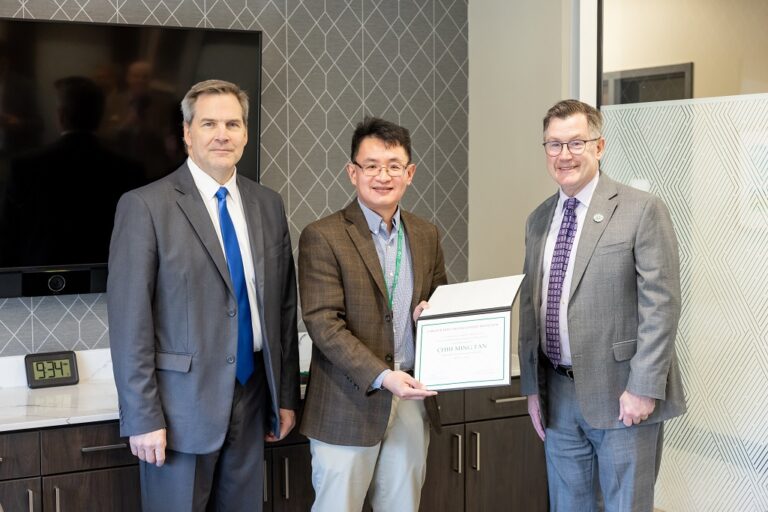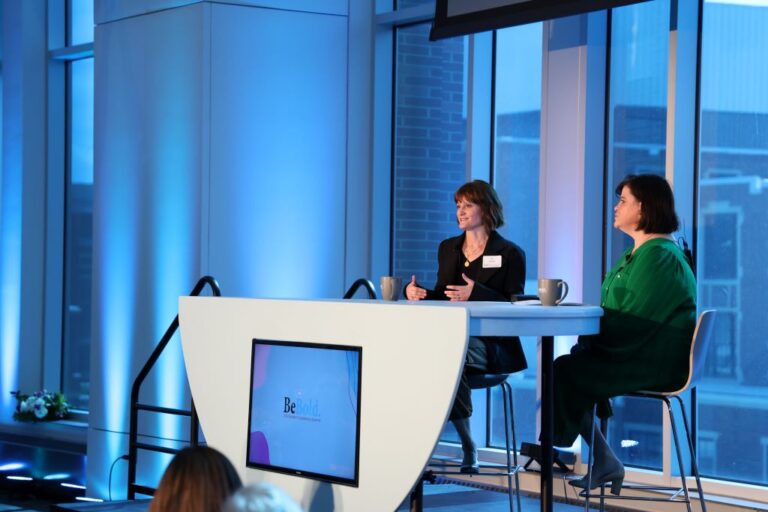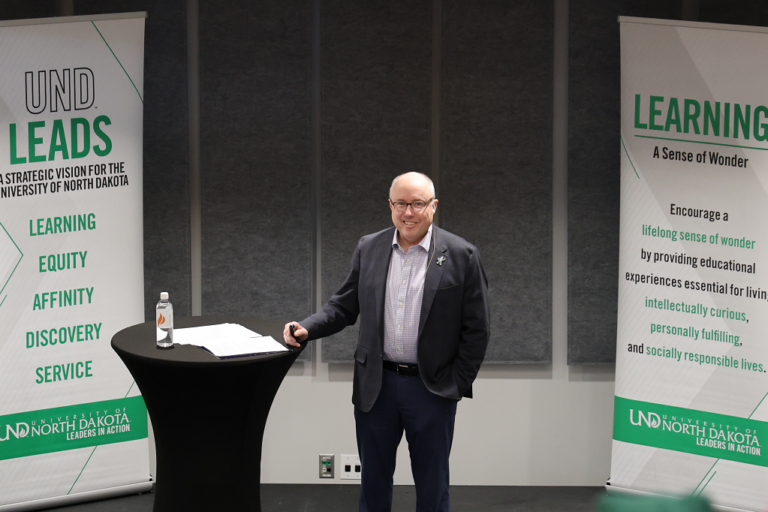“Green light” to graduation
New office combines student services to help raise retention, graduation rates

Helping students encounter more green lights than red ones on the road to graduation is the goal of Student Academic Success & Career Engagement.
“When students come to UND, they expect to earn a four-year degree that will launch their career,” said Debbie Storrs, senior vice provost. “Unfortunately, sometimes that doesn’t happen. We are working to remove institutional barriers and green-light students for graduation.”
That’s why UND has launched the new office structure, which brings together academic core advisors, professional advisors, a new transfer coordinator, Career Services, Military & Veteran Services, Army & Air Force ROTC, Starfish, Testing Services, the International Center, and Learning Services.
The office is located in 115 Twamley Hall and other areas across campus.
“We help students figure out what they need and connect them to people and tools to help them,” said Angie Carpenter, who leads the new area. “We want our students to succeed here and after they graduate.”

“Making a difference and helping students is why the Student Academic Success & Career Engagement Office was formed,” said Karyn Plumm, assistant vice provost for student success.
“Our focus is professional advising, student services and retention,” Plumm said. “We want students to have a consistent, positive experience across campus. We aim to help students to stay on track, know where they’re at academically, and help them graduate faster.” That includes making it easier for students to change majors and meet graduation requirements across academic colleges, she said.
Students like the reorganized office and its services.
“We had 150 referrals just in the first week,” Carpenter said. “Students know we’re here, and they say it’s a place you know you can get your questions answered. We figure out who they need to talk to, and we connect them. There’s less running around for the students, and if we can’t answer their questions, we walk them to the person they need. Our goal is to enhance the student academic experience and help students graduate.”
Carpenter said the individual units have always worked together, and pulling them under one umbrella makes it easier to collaborate across departments.
“It’s smoother for students, and it will make their experience better,” Carpenter said. “We’re excited to see how we can create an even more positive student experience.”

Breaking down barriers
It all comes down to student success and retention.
UND has done a great job of increasing graduation rates, which are up 10 percentage points over the last three years. But retention hasn’t increased, and the goal of the new unit is to help even more students stay in school and graduate.
“Student success and retention is everyone’s responsibility,” Storrs said.
Faculty and staff play a central role in ensuring a good student experience, and helping students stay on track and graduate.
“A staff member in the Food Court can make a student’s day,” said Storrs. “Financial Aid staff and advisors can help students navigate money and loan challenges.”
Faculty are key to students’ academic success and experience, Storrs said. In addition to providing a quality academic learning experience in the classroom, faculty often help students navigate the institution and feel connected. She cited the example of a student who transferred to UND over the summer. A faculty member saw the student walking in the hall, pulled the student into his office, and answered questions even though the faculty member was in his office only to retrieve a couple of research items.
“He went out of his way to help that student, and that made a difference in the decision of the student to enroll and commit to UND,” Storrs said. “We all need to do that. Encourage students to engage outside of class, invite them to connect with a student group, take them to the Career Center where they can meet a peer mentor. You never know how much difference you can make in a student’s life.
“This is the right thing to do,” Storrs said. “We are working to eliminate the various reasons why students drop out, and working to help every student experience a sense of belonging to UND.”


